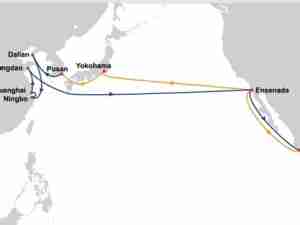AgTC Position Upon Release of the OCEMA “Best Practices” for Container Weight SOLAS Amendment
posted by AJOT | Mar 22 2016 at 09:54 AM | Liner Shipping
There are simpler ways to accomplish the VGM submission which some senior people at carriers have suggested and endorsed in private conversation; privately they say they are not very happy with this inflexible approach of OCEMA/WSC. as it adds complexity and cost not only for shippers, but for carriers at a time that carriers can ill-afford additional costs of operations.
We are puzzled by the inflexibility of carrier/ OCEMA/WSC interpretation of the SOLAS amendment, which appears more focused on strictest legal reading than on the intent of the SOLAS amendment and the economic health of the ocean carriers. In contrast, the AgTC always seeks to increase the competitiveness and reduce costs for our members, the US exporters, who are hit hard by the high cost of the dollar. Even today the AgTC met to explore improvements in the export documentation process, as we work with Federal agencies (CBP, Census) to reduce costs, complexity for US exporters.
Similarly we were hoping that OCEMA would consider mechanisms that would meet VGM and SOLAS objectives while reducing costs and complexity for carriers (and shippers), rather than increase them. Ocean carriers claim not to be making a lot of money these days, much due to conditions beyond their control —in contrast, this agreement by ocean carriers, under the OCEMA banner, to impose these strict, inflexible container weight certification protocols on themselves and the supply chain is an unnecessary, disruptive and expensive self-inflicted wound.
For many years, we at the AgTC have engaged directly with senior ocean carrier officials in order to remove misunderstandings, improve relations with their customers, with some excellent, tangible results benefiting those specific carriers and significant exporters. We recognize those carriers that work constructively with the shippers. We want the US shipper to be able to compete globally, and we want the carriers to make money.
We remain convinced that several carrier operations folks (2 or 3), unconstrained by their lawyers, should sit down with 2 or 3 customers (the shippers) to figure this out. We were encouraged when FMC Commissioner Rebecca Dye invited such a group of carriers and shippers last month; the shippers came and spoke, but unfortunately the carriers weren’t allowed to speak—their lawyers wrote the speech and then led the discussion. We would like Commissioner Dye to try it again, but this time, let the carriers and shippers work this out. Hey carriers!—leave the lawyers at home – who knows, you might find a way to reduce costs, improve relations with your customers, and start making money again.





